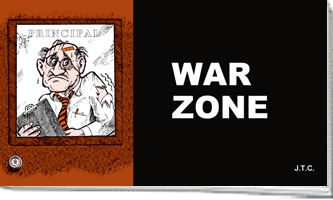Prayer in Schools: Would It Work?
- Issue Date: November/December 1987
Note: This article appeared in the November/December 1987 issue of Battle Cry. Although the names in government have changed, the principles remain the same. We have made it available to encourage all Christians to think carefully about this vital issue.
Outraged over the inroads of humanism and atheism in our schools, more and more Christians now favor the return of prayer to public school classrooms. Some want only a moment of silence. But other, powerful groups want much more. Is it a good idea? Or does it hide a sinister trap?
During the early history of America, prayer was as much a part of the school system as reading, writing and arithmetic. The teacher was accountable to the usually-Protestant community in which he or she worked, and was selected not only based upon academic criteria, but also was required to display a Protestant ethic approved of by the local people.
But times have changed. The freedom to choose a teacher that parents feel will be a good moral influence have been replaced by court orders giving even sexual perverts and morally decadent teachers the right to keep their jobs training the young.
And anyone who thinks that they only teach academics are simply not listening to the teachers' national union, which actively promotes teaching of "morals" and "values" in the classroom.
Teachers, those people who ultimately must lead prayer in schools, are often Mormons, Catholics, Buddhists, occultists, Muslims, etc. Christian parents who want prayer in their school are likely to disapprove of the result.
When our forefathers fled England to make a new life in this land, they were fleeing government-sponsored religion. The high principles espoused by the government sounded good enough, but there were flaws these believers could not tolerate. State-sponsored religion deteriorates. The reason is simple.
True pastors, who desperately desire to lead their people to God, tend to do just that. They stay in the local church, carrying out their labor of love. It is those religious leaders who prefer power and public recognition that seek to shape government policy toward religion. And thus the leaven of the Pharisees becomes the dominant force.
Individual evangelical Christians will never have the power to shape public policy. Jesus predicted that very few would find the road to righteousness, so God's people will always be a minority. And remember, He said this right in the middle of a fiercely religious country. It is the best organized religious groups that will get control.
The most powerful of such groups is the Roman Catholic Church. That's who provides the clout without which the Moral Majority could not survive. (Moral Majority was the brainchild of Paul Weyrich, a Roman Catholic, and Falwell at one time admitted that one-third of its support came from Catholics). Pat Robertson must come to grips with the fact that he can never win a national election without the help of the Catholic Church.
Ronald Reagan systematically populated the halls of government, including the Supreme Court, with Catholics. And these Catholics, including the outspoken Secretary of Education William Bennett, want prayer in schools.
One thing should be obvious. If Catholic organizations and government leaders so wholeheartedly support prayer in schools, they obviously feel that their children will not be subjected to a Protestant influence.
One has to conclude that they are confident they can control the outcome. Is this really what Christian parents want? Or is it possible that the idea of keeping the government out of religion, even though that has led to some obvious excesses, might be the only thing protecting our religious freedom?
Jesus said, "My kingdom is not of this world: if my kingdom were of this world, then would my servants fight, that I should not be delivered to the Jews." That hasn't changed.
When the government sponsors religion, the religious groups that best know how to exercise political power will dominate. Learning how to do that effectively takes practice, and only one group really has centuries of political experience...the Roman Catholic Church.
- See more articles on related topics:
- Catholicism
- Political Power
More on Catholicism:
Products of Interest:

War Zone
This school was a "war zone" until the Gospel got inside.
This Was Your Life
Everything you have said or done will be played back at judgment. Will your name be in the Book of Life?



